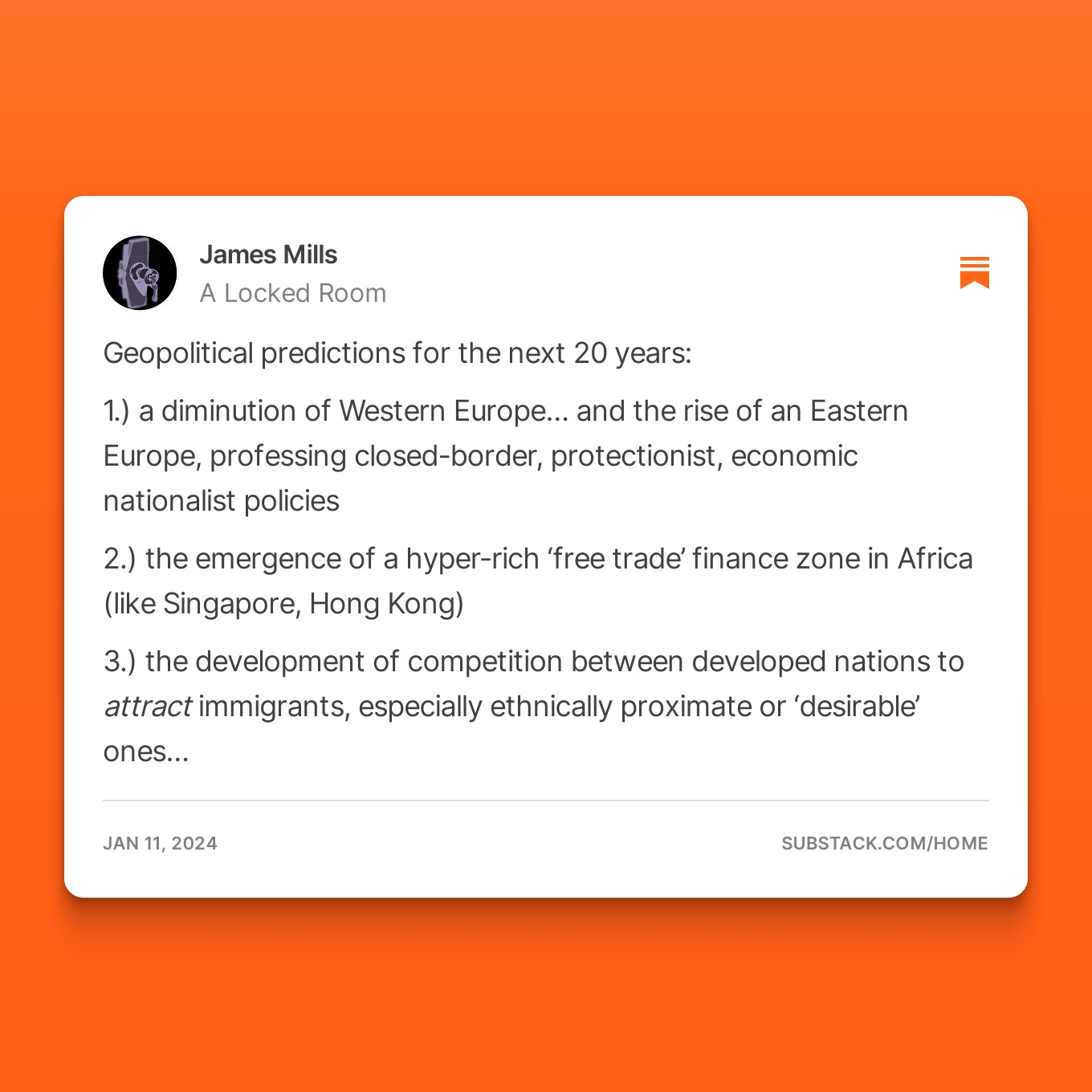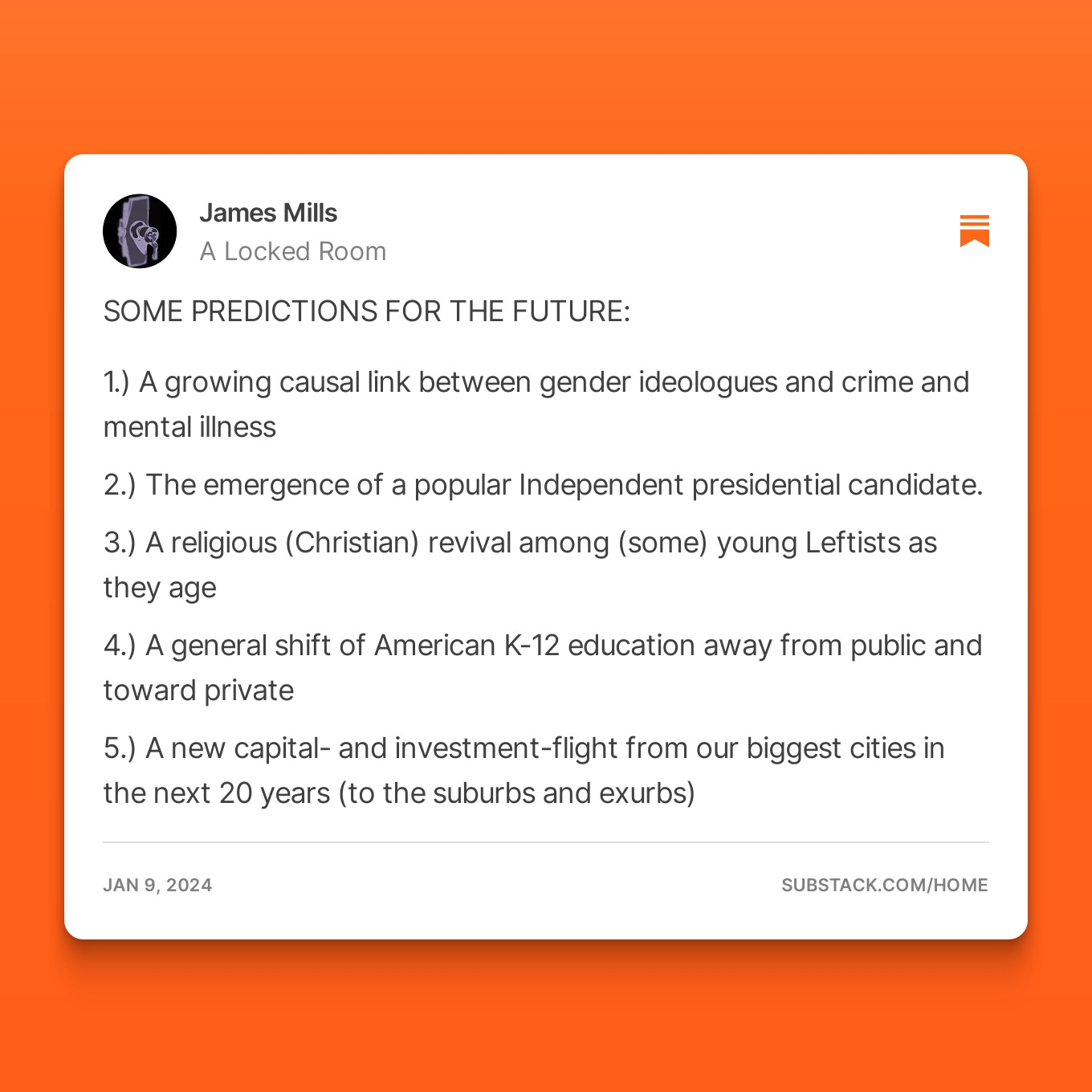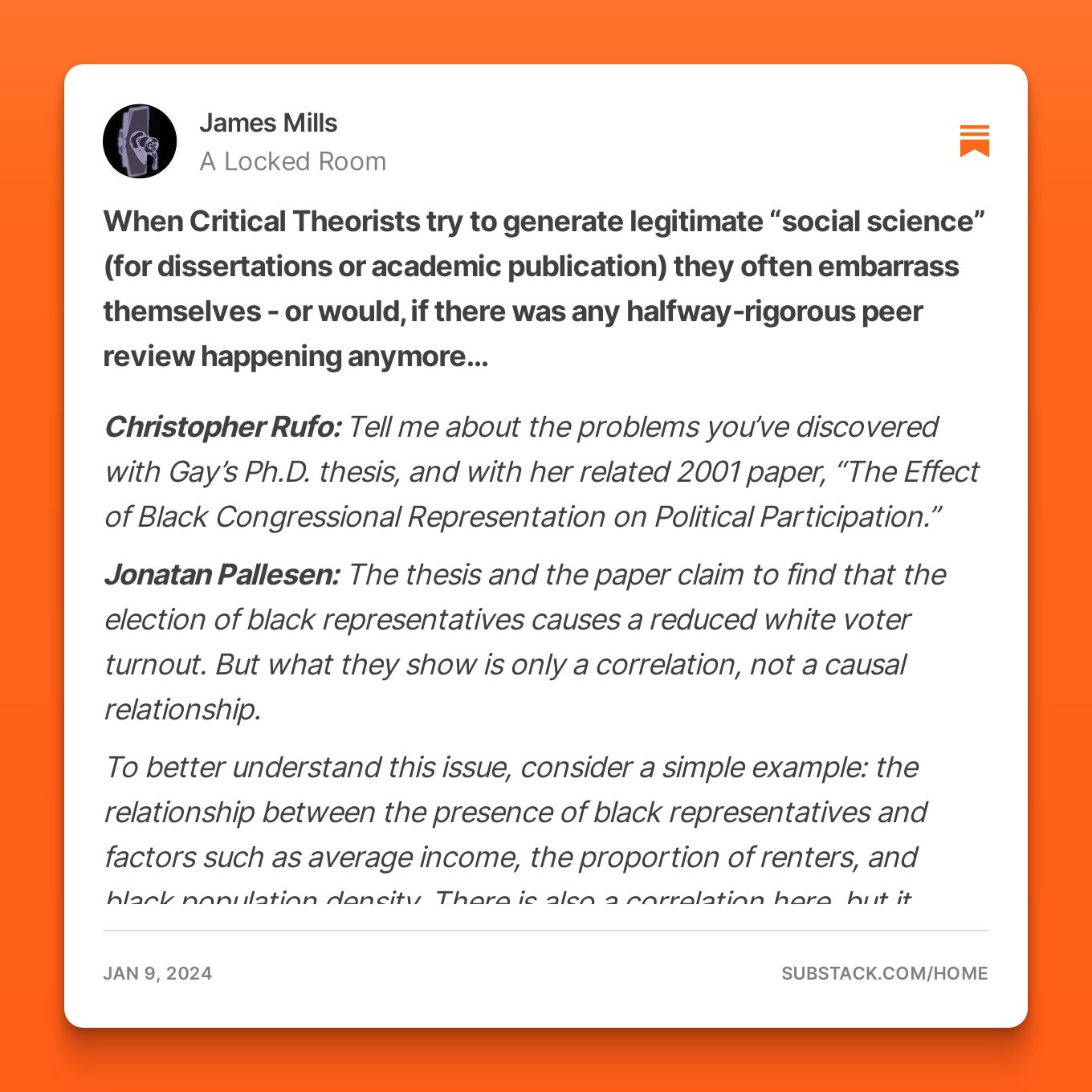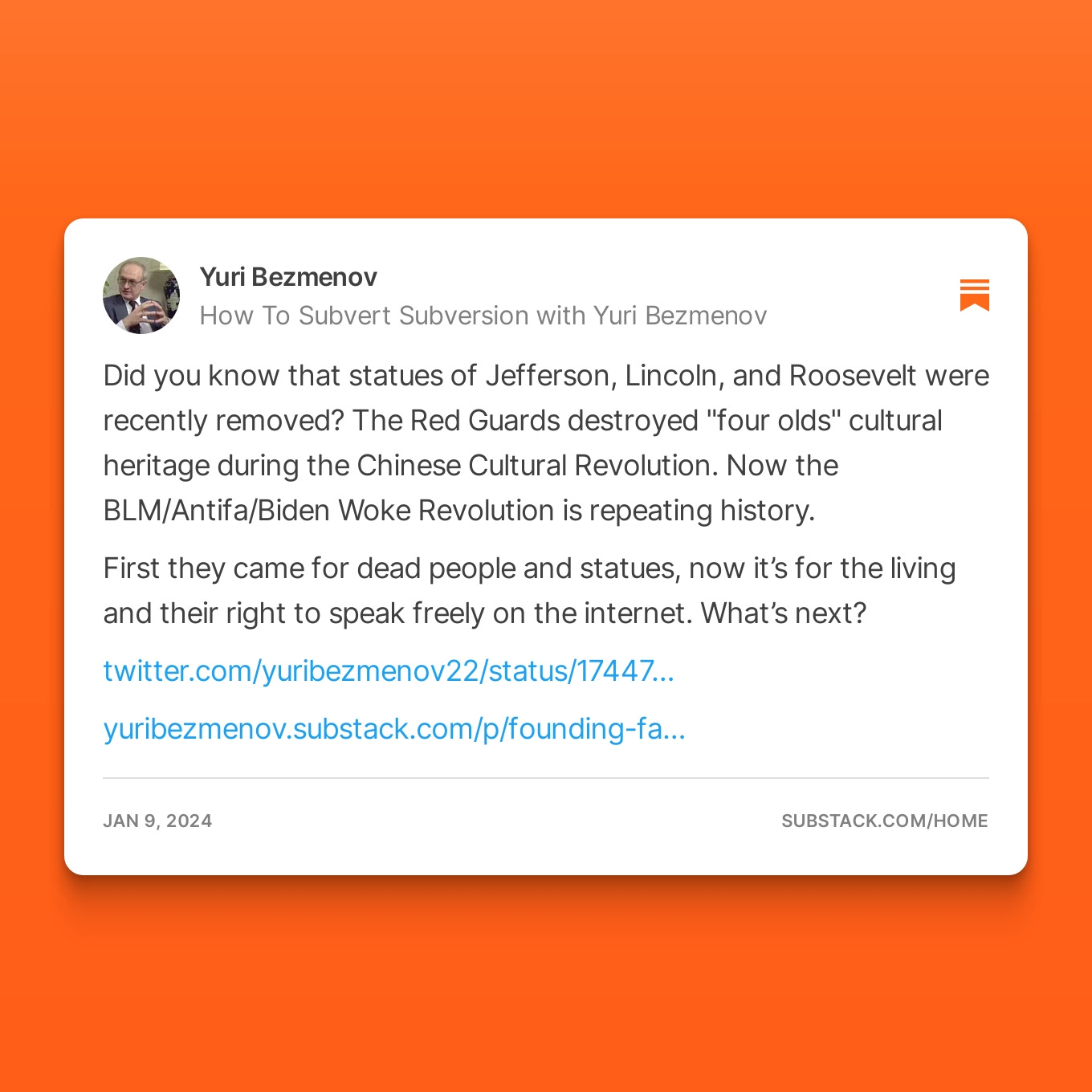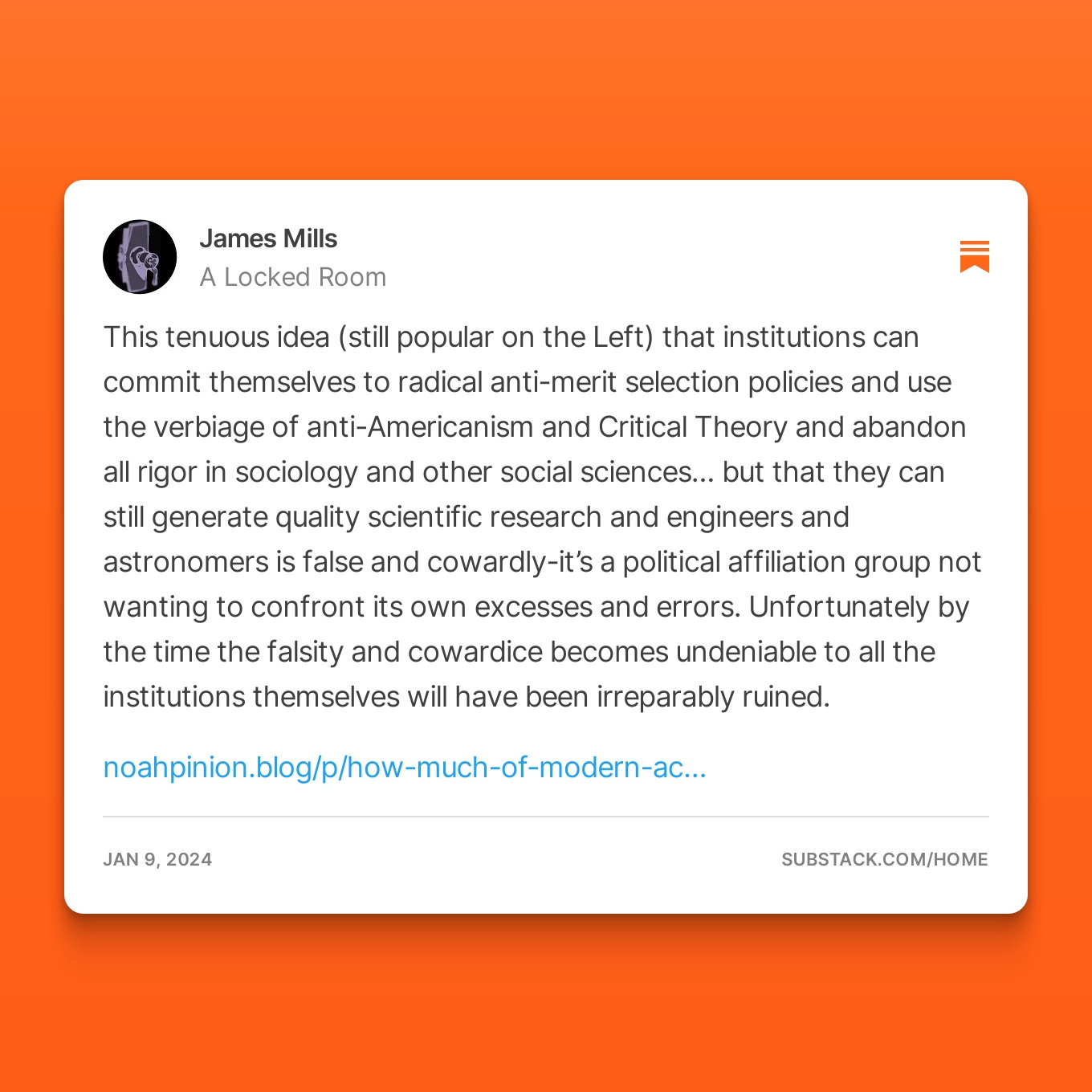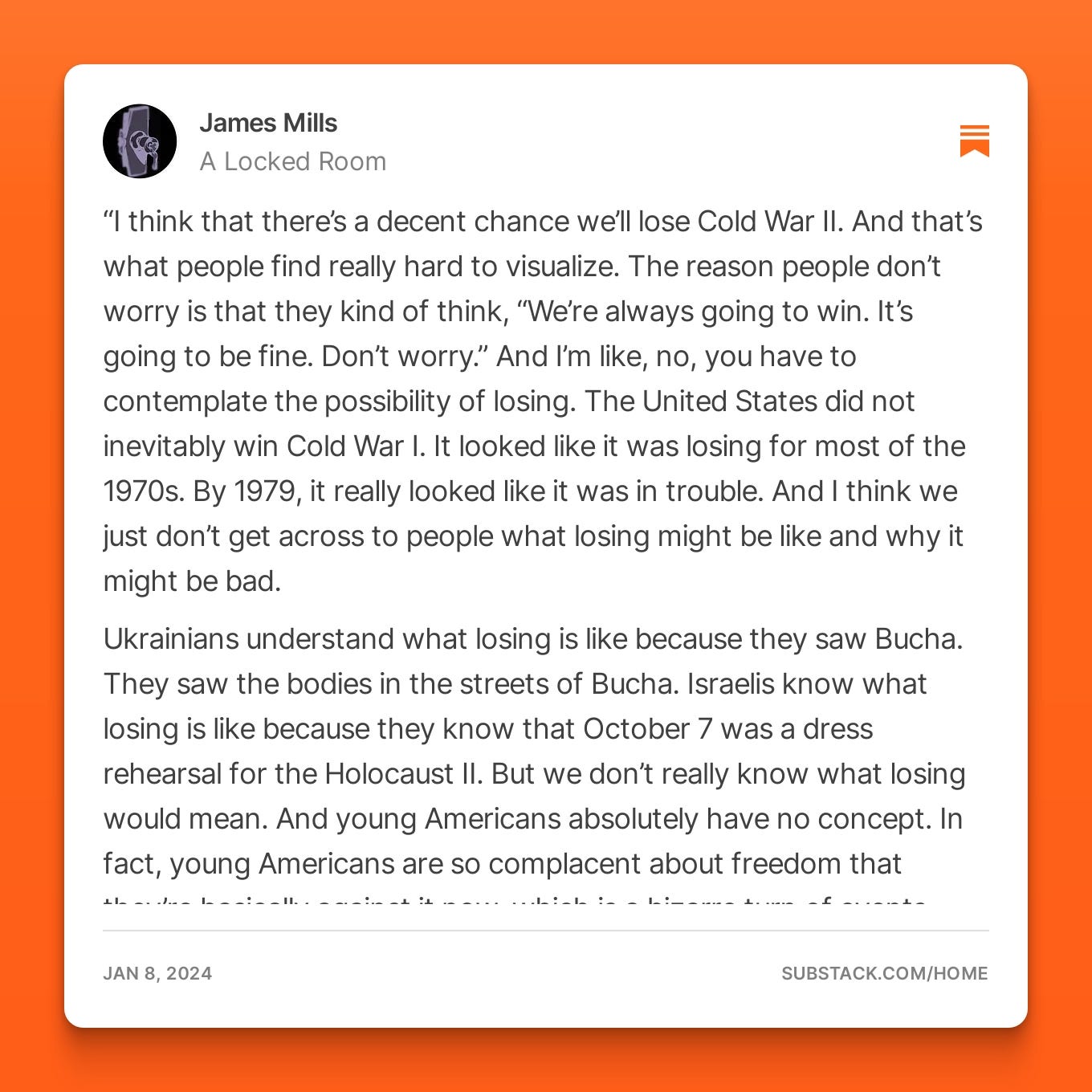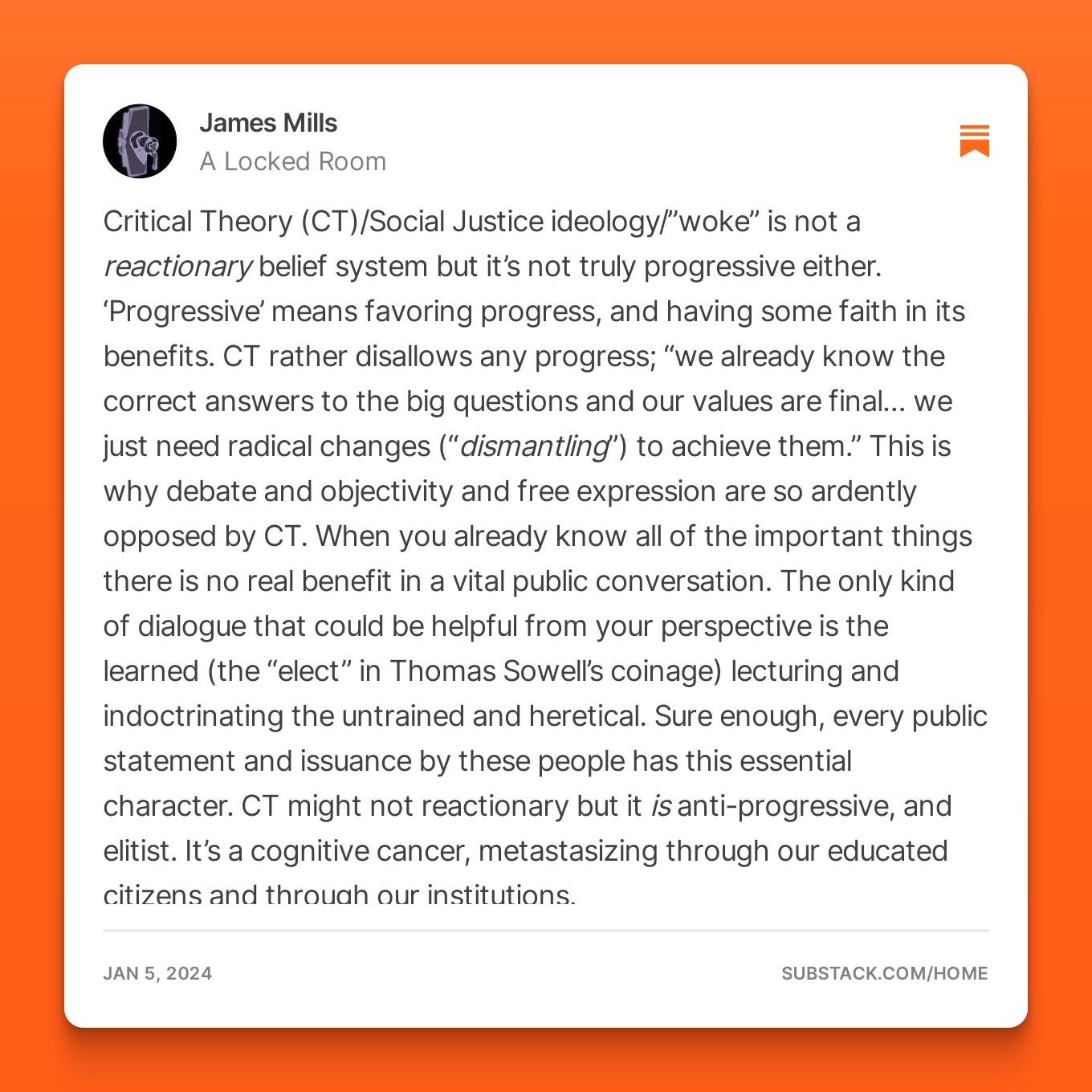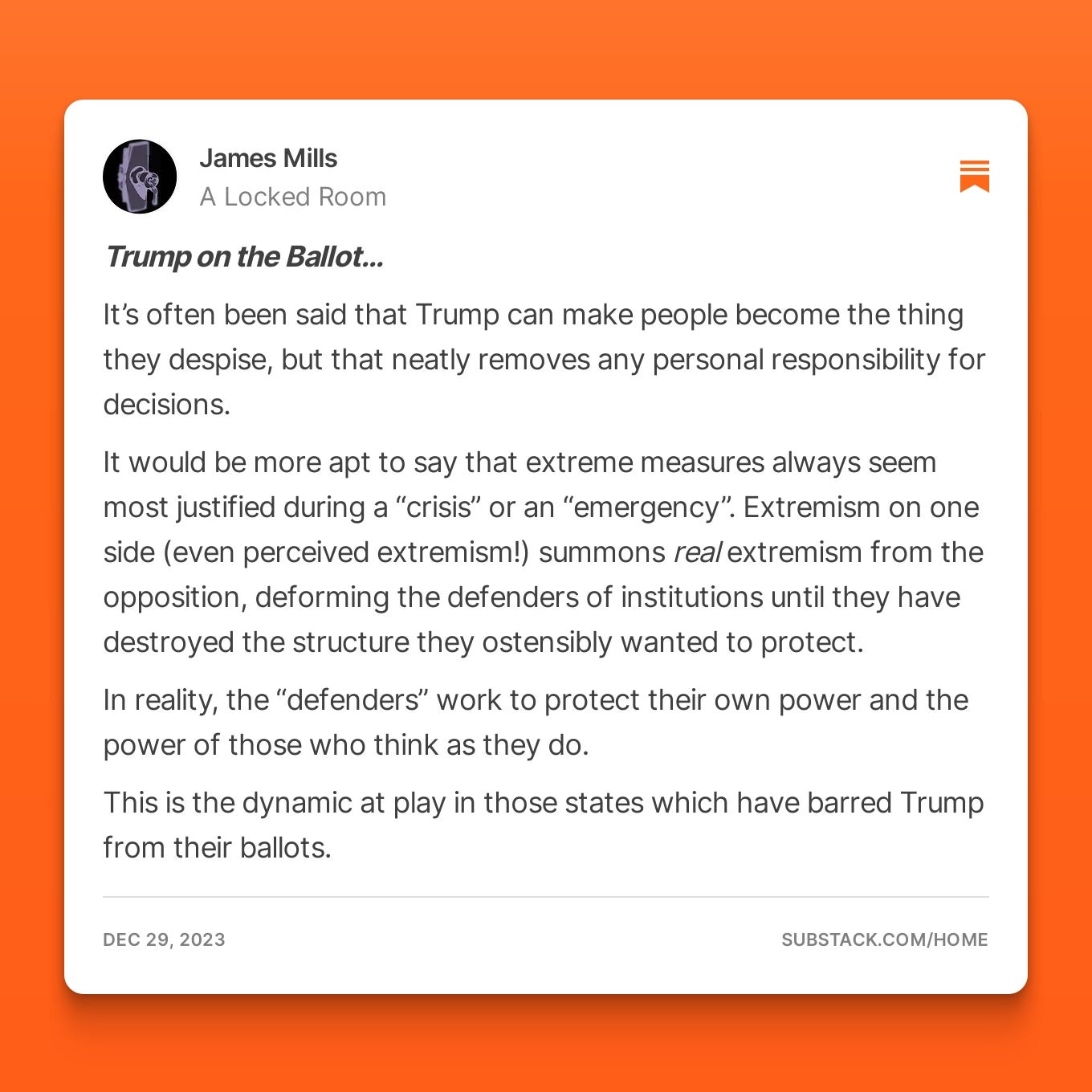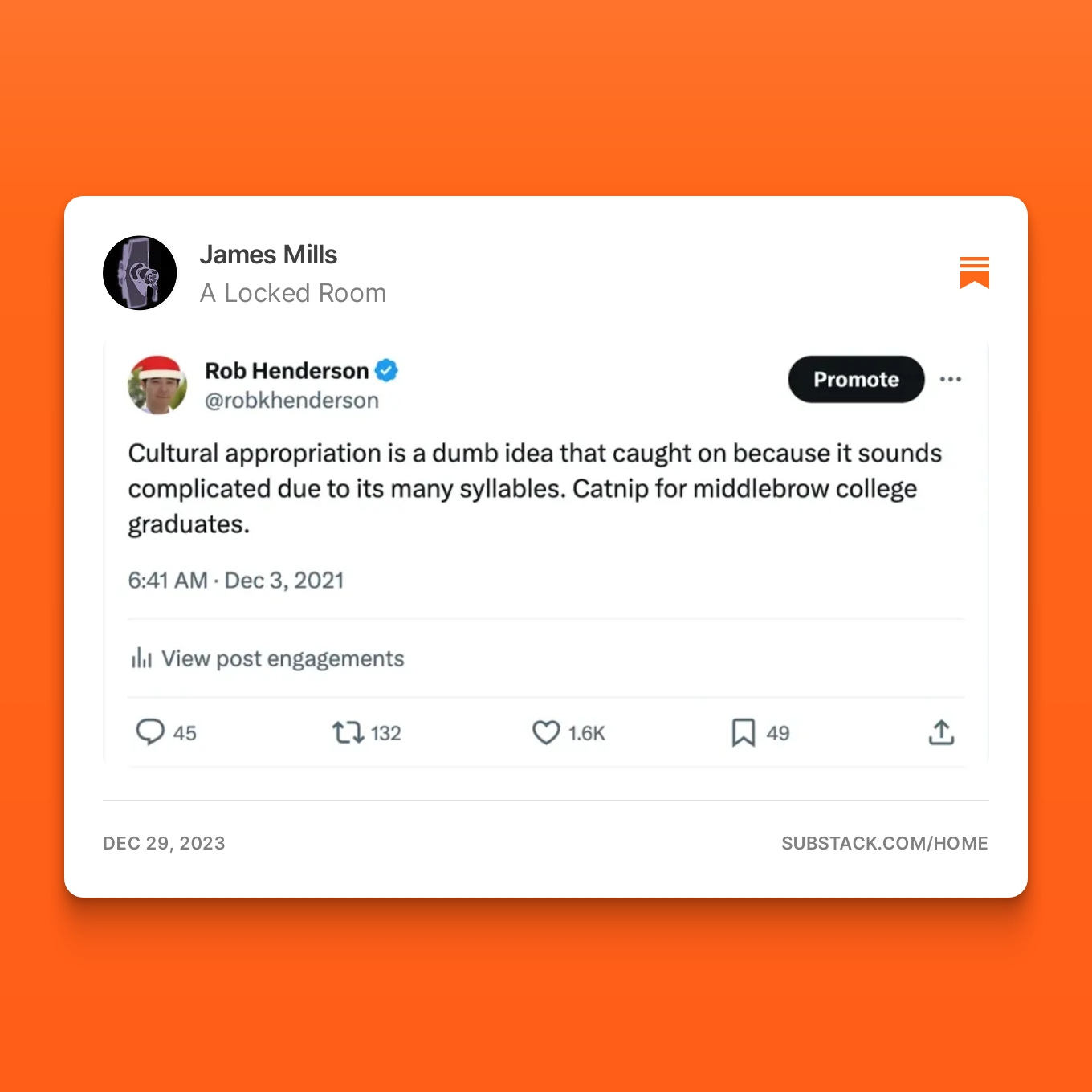Happy New Year!
- MAY THE BEST OF YOUR TODAYS BE THE WORST OF YOUR TOMORROWS -
When Critical Theorists try to generate legitimate “social science” (for dissertations or academic publication) they often embarrass themselves - or would, if there was any halfway-rigorous peer review happening anymore…
Christopher Rufo: Tell me about the problems you’ve discovered with Gay’s Ph.D. thesis, and with her related 2001 paper, “The Effect of Black Congressional Representation on Political Participation.”
Jonatan Pallesen: The thesis and the paper claim to find that the election of black representatives causes a reduced white voter turnout. But what they show is only a correlation, not a causal relationship.
To better understand this issue, consider a simple example: the relationship between the presence of black representatives and factors such as average income, the proportion of renters, and black population density. There is also a correlation here, but it would be incorrect to conclude that electing black representatives directly causes higher population density. Instead, it is more likely that areas with a higher black population density have a greater tendency to elect black representatives.
The paper is like this, just with one extra step. In step one, Gay employs a method known as “ecological inference” to estimate white voter turnout. This estimation relies on data such as the total votes cast per precinct, as well as information about the precinct, including average income and the other previously mentioned factors. In step two, a regression shows a correlation between this estimate and black representatives. The paper concludes that black representation has a jstor.org/stable/3118235 on white voter turnout, based on this correlation.
But this has the same basic problem as the simple example. Factors like black population density are likely to influence the tendency to elect black representatives. And since they, by construction, also influence the estimate of the white turnout, this leads to a correlation in the data—without any causal effect from the election of black representatives.
This is very basic. For many people who work with data, such considerations about possible alternative hypotheses are the first thing we think about. But for some reason it was not considered in the paper, which means that the conclusion it makes about causality is invalid.
The Effect of Black Congressional Representation on Political Participation
“I think that there’s a decent chance we’ll lose Cold War II. And that’s what people find really hard to visualize. The reason people don’t worry is that they kind of think, “We’re always going to win. It’s going to be fine. Don’t worry.” And I’m like, no, you have to contemplate the possibility of losing. The United States did not inevitably win Cold War I. It looked like it was losing for most of the 1970s. By 1979, it really looked like it was in trouble. And I think we just don’t get across to people what losing might be like and why it might be bad.
Ukrainians understand what losing is like because they saw Bucha. They saw the bodies in the streets of Bucha. Israelis know what losing is like because they know that October 7 was a dress rehearsal for the Holocaust II. But we don’t really know what losing would mean. And young Americans absolutely have no concept. In fact, young Americans are so complacent about freedom that they’re basically against it now, which is a bizarre turn of events.
We need a bit more of what we would actually be like if we lost. Let’s just imagine that there is a Taiwan crisis and they send two aircraft carrier groups, and the Chinese just sink both the carriers, and the U.S. finds it has to sue for peace, and Taiwan is taken over, and Xi Jinping does the ticker-tape parade through Taipei. What then? What does that mean? I think a lot of people haven’t really got anywhere close to thinking that through.
They don’t realize that ceasing to be number one, losing the Pax Americana, has massive costs. These are the things people don’t spend enough time thinking about because they just complacently assume that somehow all of this stuff is going on over there in Ukraine and Israel and Taiwan, and somehow we’ll be fine. But the reality is we will definitely not be fine any more than we would have been fine if the Soviets had won the first Cold War.”
-Niall Ferguson, for The Free Press






